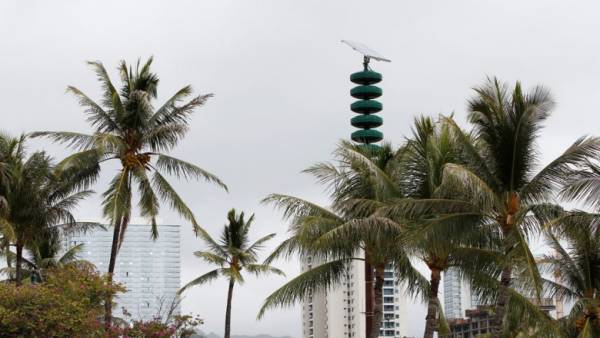Not a drill: what to do in case of a missile strike?
What if the enemy missile flies in the direction of your country, and you only have a few minutes to run to the shelter?

Imagine this scary, but it was faced with this last Saturday, the Hawaiians, when they were notified that in Hawaii ballistic missile flies, “Immediately follow the cover. This is not a drill”.
It all happened so suddenly that many later admitted on Twitter that hid where they could in the bathroom or under the bed.
But what are the official regulations in case of a missile strike?
In Hawaii this question since December of last year, when the state had resumed monthly drill for warning of a nuclear strike — for the first time since the end of the cold war.
The power of Hawaii, which is located in 7400 miles from North Korea, began to show concern from the moment the President of the United States Donald trump has become a regular exchange of threats with North Korean leader Kim Jong-UN.
So, the procedure for residents of Hawaii is:
- First, make sure that it really is a siren warning of a missile threat. It gives a floating (fluctuating) sound, which should not be confused with monophonic siren used by the state authorities for warnings on natural disasters;
- Second, do not try to escape. You will be much safer, if you will be in the nearest building, preferably on the ground floor or in the basement;
- The most important thing is to ensure the maximum distance between themselves and the radioactive fallout.
In social networks there was video on which the adults hid the children in the rain collectors. This is unsafe because in such places there is the risk of drowning or of suffocation from noxious fumes.
Estimates of how quickly flies the North Korean rocket range, however, according to data released in December, the largest daily newspaper in Hawaii Honolulu Star-Advertiser, this time will be approximately 20 minutes.
The emergency service in Hawaii in November last year, issued the following recommendations: “Go inside, go outside, listen to the media.” Thus it is necessary to turn on the TV or radio to wait for information or further instructions.
The Ministry of national security of the United States advises citizens to visit a special government website ready.gov where you can find tips about how to survive various kinds of extreme situations — from attack by an armed man before the volcanic eruption and epidemics.